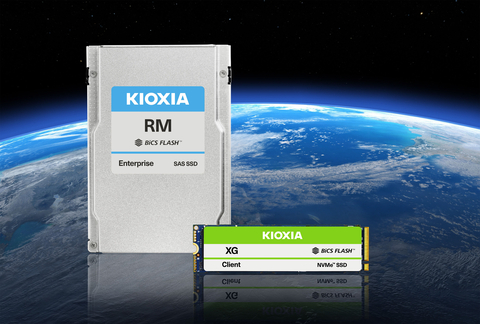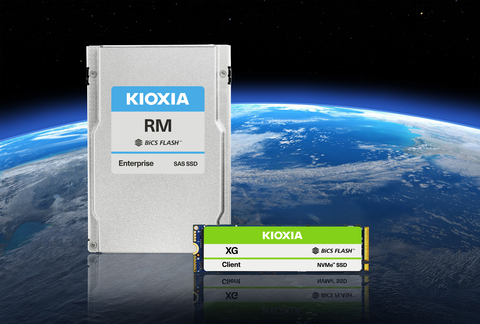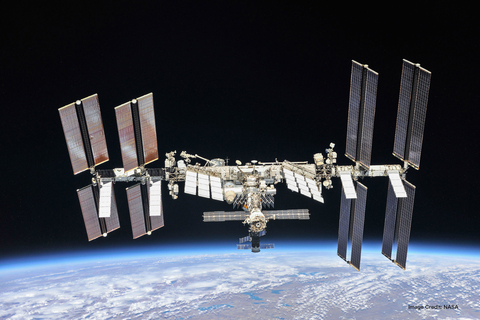TOKYO--(BUSINESS WIRE)--Kioxia Corporation today announced its proud participation in the Hewlett Packard Enterprise (HPE) Spaceborne Computer-2 (SBC-2) program. As part of the program, KIOXIA SSDs provide robust flash storage in HPE Edgeline and HPE ProLiant servers in a test environment to conduct scientific experiments aboard the International Space Station (ISS).
The HPE Spaceborne Computer-2, the first in-space commercial edge computing and AI-enabled system to run on the ISS, is part of a greater mission to significantly advance computing and reduce dependency on communications as space exploration continues to expand. For example, astronauts can achieve increased autonomy by processing data directly on the ISS, eliminating the need to send raw data to Earth to be processed, analyzed and sent back to space.
Designed to perform various high-performance computing tasks in space, including real-time image processing, deep learning, and scientific simulations, the HPE SBC-2 utilizes a combination of HPE’s edge computing solutions, including the HPE Edgeline Converged Edge System, a rugged and compact system, and the HPE ProLiant server for high-performing capabilities. The HPE SBC-2 targets a range of workloads and has already helped advance progress in healthcare, image processing, natural disaster recovery, 3D printing, 5G, AI and more.
As a sponsor of the HPE SBC-2, Kioxia has provided flash-based SSDs, including KIOXIA RM Series Value SAS and KIOXIA XG Series NVMe™ SSDs, to enable these solutions. These flash-based SSDs are better-suited than traditional hard disk drive storage to withstand the power, performance and reliability requirements of outer space, as they have no moving parts, are less susceptible to electromagnetic waves and provide faster performance.
Kioxia has been collaborating with HPE to create best-in-class storage solutions for years, and the company’s products enable a broad range of HPE solutions, from mobile to data center to enterprise.
*NVMe is a registered or unregistered mark of NVM Express, Inc. in the United States and other countries.
*Other company names, product names, and service names may be trademarks of third-party companies.
About Kioxia
Kioxia is a world leader in memory solutions, dedicated to the development, production and sale of flash memory and solid-state drives (SSDs). In April 2017, its predecessor Toshiba Memory was spun off from Toshiba Corporation, the company that invented NAND flash memory in 1987. Kioxia is committed to uplifting the world with “memory” by offering products, services and systems that create choice for customers and memory-based value for society. Kioxia's innovative 3D flash memory technology, BiCS FLASH™, is shaping the future of storage in high-density applications, including advanced smartphones, PCs, SSDs, automotive and data centers.
*Information in this document, including product prices and specifications, content of services and contact information, is correct on the date of the announcement but is subject to change without prior notice.





